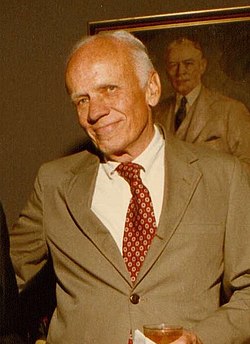Walker Percy Quote
A man is after all himself and no other, and not merely an example of a class of similar selves. If such a man is deprived of the means of being a self in a world made over by science for his use and enjoyment, he is like a ghost at a feast. He becomes invisible. That is why people in the modern age took photographs by the million: to prove despite their deepest suspicions to the contrary that they were not invisible.
Walker Percy
A man is after all himself and no other, and not merely an example of a class of similar selves. If such a man is deprived of the means of being a self in a world made over by science for his use and enjoyment, he is like a ghost at a feast. He becomes invisible. That is why people in the modern age took photographs by the million: to prove despite their deepest suspicions to the contrary that they were not invisible.
Related Quotes
People accuse me of falling in love easily. It just means that I'm able to see the beauty in most of the people who cross paths with me and I appreciate it for what it is and also for what it isn't. L...
Ashly Lorenzana
Tags:
beauty, falling in love, flaws, imperfection, loneliness, love, passion, people, souls, strength
About Walker Percy
Walker Percy, OblSB (May 28, 1916 – May 10, 1990) was an American writer whose interests included philosophy and semiotics. Percy is noted for his philosophical novels set in and around New Orleans; his first, The Moviegoer, won the National Book Award for Fiction.
Trained as a physician at Columbia University, Percy decided to become a writer after a bout of tuberculosis. He devoted his literary life to the exploration of "the dislocation of man in the modern age." His work displays a combination of existential questioning, Southern sensibility, and deep Catholic faith. He had a lifelong friendship with author and historian Shelby Foote and spent much of his life in Covington, Louisiana, where he died of prostate cancer in 1990.
Trained as a physician at Columbia University, Percy decided to become a writer after a bout of tuberculosis. He devoted his literary life to the exploration of "the dislocation of man in the modern age." His work displays a combination of existential questioning, Southern sensibility, and deep Catholic faith. He had a lifelong friendship with author and historian Shelby Foote and spent much of his life in Covington, Louisiana, where he died of prostate cancer in 1990.
